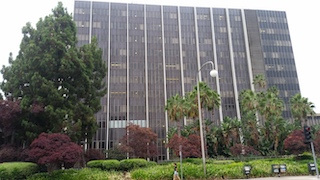The motion begins with the defense making a prima facie showing that the prosecution increased the charges, i.e. recharged defendant from a misdemeanor to a felony, in response to the defendant’s exercise of a procedural right and that the new charge exposed defendant to potentially greater punishment. This means after jeopardy has attached, i.e. after defendant asserts his right to trial. This showing creates a presumption of vindictiveness.
If the motion is made before defendant demands trial, this is considered “before jeopardy has attached.” Then no presumption of vindictiveness arises when the prosecution adds counts or enhancements before trial.
(1984) 153 Cal.App.3d 416, 422, 200 Cal.Rptr. 251. What the defendant must show is that the prosecutor’s decision to file additional or more serious charges was motivated by a desire to punish defendant for exercising a legal right.
(1982) 457 U.S. 368, 384, 73 L.Ed.2d 74, 87, 102 S.Ct. 2485;
(1994) 21 Cal.App.4th 1532, 1549, 26 Cal.Rptr.2d 730.
Support for such a motion is usually in the form of affidavits or declarations laying out the events leading up to the filing of the new, more serious charge.
Twiggs v. Superior Court (1983) 34 Cal.3d 360, 369, 194 Cal.Rptr. 152.
Defendant should be aware, however, that discovery of additional evidence will justify such an increase in the original charge.
U.S. v. Preciado-Gomez (9th Cir. 1976) 529 F.2d 935, 940. Likewise, misconduct by defendant after the filing of the original charge(s) can justify increased charges.
In re Anthony M. (1976) 64 Cal.App.3d 464, 469, 134 Cal.Rptr. 540.
This motion should be raised before trial.
Twiggs, supra, at 371. The only way to raise this on appeal is through a claim of ineffective assistance of counsel. See
People v. Tirado (1984) 151 Cal.App.3d 341, 354, 198 Cal.Rptr. 682, overruled on other grounds in
People v. Mendez (1999) 19 Cal.4th 1089, 1097, 81 Cal.Rptr.2d 301.
In the context of after jeopardy has attached, the prosecution then bears the burden of rebutting the presumption of vindictiveness, by showing that the increase in the severity of the new charge was not motivated by vindictiveness. The prosecution, in other words, must dispel the appearance of vindictiveness as well the inference of actual vindictiveness.
Twiggs, supra, at 371; see also
People v. Bower (1985) 38 Cal.3d 865, 878, 215 Cal.Rptr. 267.
How can the defendant lose such a motion by the prosecutor successfully rebutting this presumption? The prosecution can show that the more serious charge arises from the discovery of additional evidence.
Preciado-Gomez, supra, at 940. The prosecution may also be able to rebut the presumption based on an evidentiary ruling from the judge.
Robinson v. Superior Court (1986) 181 Cal.App.3d 746, 226 Cal.Rptr. 724.
Surprisingly, failed plea negotiations can justify the prosecutor adding enhancements while at the pretrial stage of proceedings.
People v. Matthews (1986) 183 Cal.App.3d 458, 464, 228 Cal.Rptr. 316. We especially dislike this case. Likewise, the prosecutor can successfully rebut the presumption by explaining that he waited to see what sentence defendant received on an unrelated case.
People v. Mendez (1999) 19 Cal.4th 1089, 1097, 81 Cal.Rtpr.2d 301. In other words, the prosecutor did not think the sentence in the other case was high enough, so he increased the charges in the pending case – and this was found to rebut the presumption of retaliatory or vindictive prosecution!
For more information about prosecutorial issues, please click on the following articles:
- Is It Proper for the Prosecutor to Charge Me With More Than What Police Arrested Me for?
- Can Proposition 47 (Prop 47) Increase One’s Sentence? Yes
- What Advantage Is There to Waiving a Preliminary Hearing?
Contact us.  Santa Ana Courthouse
Santa Ana Courthouse